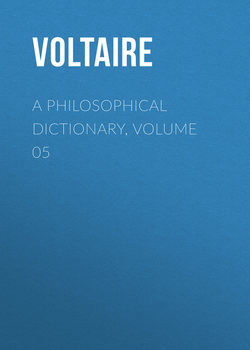Читать книгу A Philosophical Dictionary, Volume 05 - Voltaire, Вольтер - Страница 3
FASTI
ОглавлениеOf the Different Significations of this Word
The Latin word "fasti" signifies festivals, and it is in this sense that Ovid treats of it in his poem entitled "The Fasti."
Godeau has composed the Fasti of the church on this model, but with less success. The religion of the Roman Pagans was more calculated for poetry than that of the Christians; to which it may be added, that Ovid was a better poet than Godeau.
The consular fasti were only the list of consuls.
The fasti of the magistrates were the days in which they were permitted to plead; and those on which they did not plead were called nefasti, because then they could not plead for justice.
The word "nefastus" in this sense does not signify unfortunate; on the contrary, nefastus and nefandus were the attributes of unfortunate days in another sense, signifying days in which people must not plead; days worthy only to be forgotten; "ille nefasto te posuit die."
Besides other fasti, the Romans had their fasti urbis, fasti rustici, which were calendars of the particular usages, and ceremonies of the city and the country.
On these days of solemnity, every one sought to astonish by the grandeur of his dress, his equipage, or his banquet. This pomp, invisible on other days, was called fastus. It expresses magnificence in those who by their station can afford it, but vanity in others.
Though the word "fastus" may not be always injurious, the word "pompous" is invariably so. A devotee who makes a parade of his virtue renders humility itself pompous.
